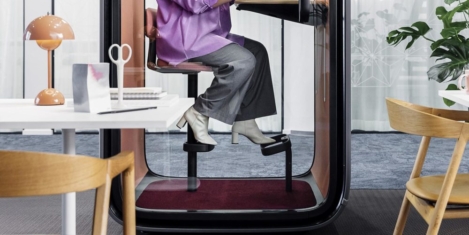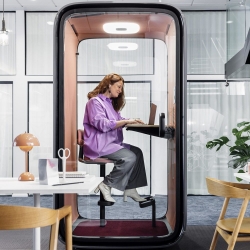June 10, 2022
Young people should optimise the time they spend in the office
 During the pandemic, around 100 million people in Europe switched to working from home – nearly half of them for the first time. This shift was rapid, with employees quickly noticing the benefits of remote work. These can include freedom from commuting, more time for personal wellbeing and increased productivity. As we move on from pandemic restrictions, we’ve seen a strong, global demand for more flexible forms of working, particularly to retain an element of remote work. While some employees want to work from home permanently, most want what’s coming to be regarded as the best of both worlds: hybrid working. Only a minority of workers now want to return to the office full time. More →
During the pandemic, around 100 million people in Europe switched to working from home – nearly half of them for the first time. This shift was rapid, with employees quickly noticing the benefits of remote work. These can include freedom from commuting, more time for personal wellbeing and increased productivity. As we move on from pandemic restrictions, we’ve seen a strong, global demand for more flexible forms of working, particularly to retain an element of remote work. While some employees want to work from home permanently, most want what’s coming to be regarded as the best of both worlds: hybrid working. Only a minority of workers now want to return to the office full time. More →
















 Even as we begin to glimpse the light at the end of the tunnel of the pandemic, evidence suggests that many workers want to carry over the working flexibility that the pandemic afforded into the post-pandemic world and a new future of work. Namely, employees are wanting to adopt a ‘mixed’ working style – spending time both working in the workplace,
Even as we begin to glimpse the light at the end of the tunnel of the pandemic, evidence suggests that many workers want to carry over the working flexibility that the pandemic afforded into the post-pandemic world and a new future of work. Namely, employees are wanting to adopt a ‘mixed’ working style – spending time both working in the workplace, 

















June 9, 2022
How I learned to stop worrying and embrace uncertainty
by Mark Eltringham • Comment, Flexible working, Technology